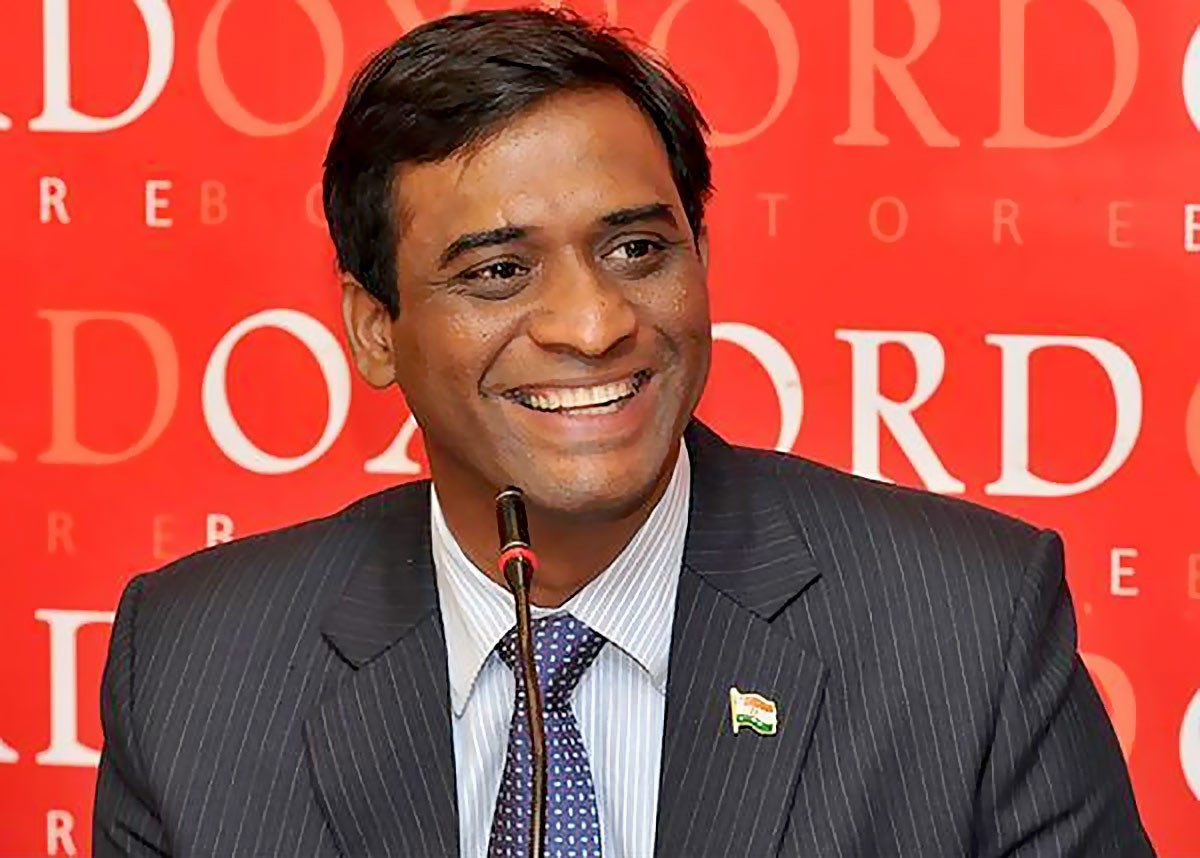'Failure is success delayed. It teaches you to be patient and persevere so that you improve.'

If the pandemic has brought its own set of job challenges, it has also brought interesting solutions.
"As a human race, we are all experimenting with this new normal. While many people lost their jobs during the pandemic, many also found new ways of employment. Women entrepreneurship has grown. Today, anyone with a laptop and a stable WiFi connection can launch a business from home.
"So, frankly, we are at an interesting phase of our life where anything is possible," says Dr Radhakrishnan Pillai, whose recent book Art Of Winning: The Chanakya Way offers practical tips and strategies from Kautilya's Arthashastra and Chanakya Neeti.
Dr Pillai, director of the Chanakya Institute Of Public Leadership that trains future leaders by using ancient Indian wisdom, has written 21 books based on Chanakya's principles. He tells Rediff.com's Divya Nair how India's youth can take advantage of the opportunities available today.
The second of a two-part conversation:
- Part 1: The Chanakya Mantra For Success
You interact a lot with young students and graduates. In your opinion, what are the key challenges they are facing?
If we look at India post-Independence, a lot of things have changed.
India is no longer a struggling country. Our education system, though flawed, has improved so much.
There is overproduction and our spending capacity has increased as well.
Today, we spend Rs 300 on a pizza so we are not a poor country.
The major challenge we face today is at the mental and emotional level.
If you look at the education system, earlier there were only three streams -- arts, science and commerce. Today, because of the digital revolution, there are so many more options. Broadly, there are three key challenges:
1. The digital age has given us many opportunities to choose from and this, in some ways, has led to a generation of confusion.
Earlier, we had limited options and had to choose between dal, chawal and roti. Today, we are offered a buffet.
Our children have so many options. At the same time, they don’t know what is right for them.
2. The second challenge is the huge generation gap.
Parents complain that their children are glued to their computer screens or digital devices. They feel very concerned. But the reality is these kids, from birth, are comfortable with technology.
Parents are not able to understand why their children behave in a certain way. The solution is that parents have to sit down and communicate with their children.
3. The third biggest challenge is that our youth lack mentorship. They need someone who can guide them to make the right choice.
While everything they need is available to them at the click of a button, they also need someone to guide them about ethics, values and morality. They have a lot of money and are spending it too, but they don't know if they are doing the right thing.
While I call this a mixed generation, we must also realise that the average life expectancy is growing. What we really need to figure out is the purpose of life. It's not about career, money or relationships any more. It's more spiritual and mental.
A lot of youngsters today are struggling to deal with failure, criticism and rejection. What's your mantra to cope with failure?
Earlier, I used to think failure is a bad thing. But it's not.
Failure is not a negative word. The way I see it, failure is success delayed. It teaches you to be patient and persevere so that you improve.
Failure is not a full stop; it is a comma. You have to get up and continue to work harder till you reach your goal.
Why is India struggling to produce job-ready graduates or professionals?
Most of our syllabus and education system is set in the industrial era. Our youngsters are still trying to cope with that.
But, in the last two years, something fundamental has changed. Thanks to the pandemic, education and learning is no longer physical. It’s become phygital (physical + digital), a hybrid model that no one was ready for.
As a human race, we are all experimenting with this new normal.
While many people lost their jobs during the pandemic, many also found new ways of employment. Women entrepreneurship has grown. Today, anyone with a laptop and a stable WiFi connection can launch a business from home.
So, frankly, we are at an interesting phase of our life where anything is possible.
I'd suggest that everyone settle down a bit. Watch the trends around you.
Unlike our parents who took up one job, spent 20-30 years in the same company and retired from the same place, the whole idea about career and life has changed drastically in the last decade.
Today, you have the luxury of having multiple jobs and careers and of doing well in more than one vocation. You can be an employee and an employer at the same time.
The way I see it, this is the golden era of opportunities. And if you want to be relevant in today's times, you have to think out of the box and embrace the changes around you.

IMAGE: Dr Radhakrishnan Pillai. Photograph: Kind courtesy Dr Radhakrishnan Pillai
It has to start from our education system, which has become more of an examination system.
We are grading children on their academic excellence but we are not training them to be leaders. Leadership should begin at school.
Leadership shouldn't be limited to politics. We should have leaders at all levels, across sectors.
Entrepreneurs are leaders too. For this to happen, we must cultivate a culture at home where children are encouraged to have discussions at the dinner table.
Parents and teachers must encourage children to take up responsibility early in life so we can train them to lead and be accountable for their actions.
Which books have had the greatest impact on you?
The Holy Geeta, a commentary by Swami Chinmayananda; The Prayer Of The Frog by Anthony De Mello; The Prophet by Kahlil Gibran and Wings Of Fire by A P J Abdul Kalam.
A few books you'd recommend for youngsters.
When you are growing up, it is very important to have someone you can look up to for inspiration.
So please read autobiographies of inspiring men and women from your country or any country. You can start with Wings Of Fire or read the complete works of Swami Vivekananda.











